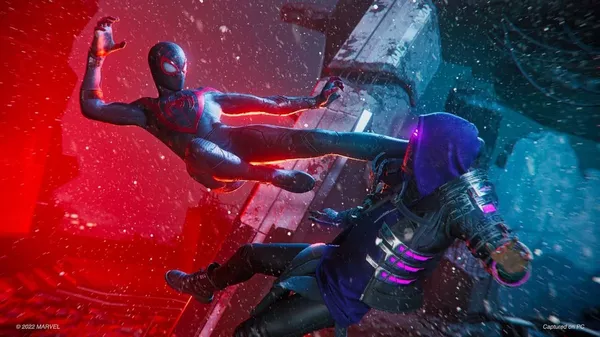Spider-Man Trilogies: Deciphering the Best of the Web-Slinger
Spider-Man, the iconic Marvel superhero, has captured the hearts of audiences for decades. With multiple film adaptations, fans have been treated to different interpretations of the web-slinging hero. Among these adaptations, three Spider-Man trilogies have stood out, each offering its unique take on the beloved character. In this article, we will delve into these trilogies, dissecting their strengths and weaknesses to determine which one deserves the title of the best Spider-Man trilogy.
The Tobey Maguire Trilogy: A Classic Hero’s Journey
The first Spider-Man trilogy, starring Tobey Maguire as the eponymous hero, holds a special place in the hearts of many fans. Directed by Sam Raimi, these films marked the resurgence of superhero movies in the early 2000s. The trilogy begins with “Spider-Man” (2002), where we witness Peter Parker’s transformation into the masked vigilante. It continues with “Spider-Man 2” (2004), often hailed as one of the best superhero films of all time, and concludes with “Spider-Man 3” (2007), exploring the internal struggles faced by our friendly neighborhood Spider-Man.
Maguire’s portrayal of Peter Parker resonated with audiences, capturing the character’s inherent innocence and determination. The trilogy adeptly navigates Parker’s journey from an awkward teenager to a responsible hero, delving into themes of power and sacrifice. The films showcased Raimi’s distinctive visual style and offered a balanced blend of action, romance, and personal growth.
However, the Tobey Maguire trilogy did have its drawbacks. “Spider-Man 3” faced criticism for its crowded storyline, juggling multiple villains and subplots. Some viewers felt that the trilogy’s tone occasionally veered into campiness, undermining the emotional weight of certain scenes. Nevertheless, this trilogy solidified Spider-Man’s presence in the cinematic landscape, leaving an indelible mark on the superhero genre.
The Andrew Garfield Duology: A Fresh Perspective
Following the Tobey Maguire trilogy, the Spider-Man franchise took a new direction with “The Amazing Spider-Man” (2012) and its sequel, “The Amazing Spider-Man 2” (2014), featuring Andrew Garfield as Peter Parker. Directed by Marc Webb, these films sought to reimagine the web-slinger’s origin story while exploring the mysteries surrounding his parents.
Garfield brought a new energy and charm to the role, portraying a more charismatic and humorous Spider-Man. The chemistry between Garfield’s Parker and Emma Stone’s Gwen Stacy added depth to the character’s personal life. The action sequences were visually impressive, taking advantage of advancements in CGI technology.
However, the Andrew Garfield duology faced criticism for its uneven pacing and convoluted plotlines. The second installment, in particular, received mixed reviews for its attempt to set up future films within the Spider-Man universe, sacrificing narrative coherence. Despite its shortcomings, this duology showcased a modern interpretation of Spider-Man and set the stage for the character’s integration into the larger Marvel Cinematic Universe.
The Tom Holland Trilogy: A New Era of Spider-Man
The most recent Spider-Man trilogy, featuring Tom Holland as the web-slinger, has taken the world by storm. Starting with “Spider-Man: Homecoming” (2017), this trilogy offers a refreshing take on the character, firmly establishing Spider-Man within the Marvel Cinematic Universe. Directed by Jon Watts, these films capture the essence of a teenage superhero navigating the challenges of high school and the weight of his responsibilities.
Holland’s portrayal of Peter Parker embodies the youthful exuberance and vulnerability of the character. The trilogy benefits from its integration into the larger MCU, with appearances from beloved characters like Iron Man and Captain America, adding depth and a sense of interconnectedness to the story. The films strike a balance between high-stakes superhero action and relatable coming-of-age moments.
The second installment, “Spider-Man: Far From Home” (2019), takes Parker on a globetrotting adventure, introducing new villains and further exploring the aftermath of the events in the MCU. It skillfully tackles the consequences of Parker’s choices and the pressure of living up to the legacy of his fallen mentor, Tony Stark.
The final installment, “Spider-Man: No Way Home” (2021), pushes the boundaries of the Spider-Man mythos, incorporating a multiverse storyline and bringing back familiar faces from previous Spider-Man film iterations. It delivers an emotionally charged narrative, with Holland delivering a compelling performance that showcases the growth and maturity of Peter Parker.
The Tom Holland trilogy succeeds in capturing the spirit of Spider-Man, offering a perfect blend of humor, heart, and heroism. It has garnered critical acclaim for its strong storytelling, character development, and the seamless integration of the larger MCU. With the recent installment being a box office sensation, this trilogy has firmly established itself as a favorite among fans and critics alike.
In comparing these three Spider-Man trilogies, it becomes clear that each has its own merits. The Tobey Maguire trilogy holds a special place in the hearts of fans, capturing the essence of Spider-Man’s classic hero’s journey. The Andrew Garfield duology offered a fresh and contemporary take on the character, though it suffered from narrative issues. Finally, the Tom Holland trilogy ushered in a new era of Spider-Man, providing a youthful and interconnected portrayal within the MCU.
Ultimately, choosing the best Spider-Man trilogy is a matter of personal preference. It depends on which interpretation resonates with you the most and the elements you value in a superhero story. Whether you prefer the nostalgia and emotional depth of the Tobey Maguire trilogy, the modernity and humor of the Andrew Garfield duology, or the seamless integration into the larger Marvel universe in the Tom Holland trilogy, all three have contributed to the enduring popularity of Spider-Man as a beloved superhero.
In the end, it is the enduring legacy of Spider-Man as a character that truly matters. As long as this web-slinging hero continues to inspire and captivate audiences, we can all agree that Spider-Man remains one of the greatest superheroes to have ever graced the silver screen.

